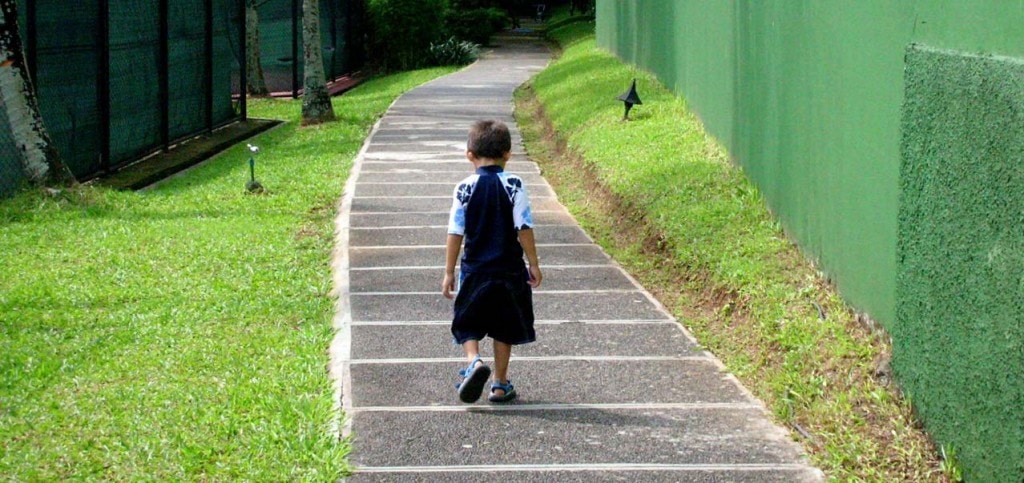(This is the ninth post in the series called I Don’t Understand You! – Learning How to Connect with Your Child When They Think Differently than You. If you haven’t read the first post already, you’ll want to start there.)
Our kids are all unique and amazing gifts from God. 
No matter how much I love my boys, there are times when I simply have a hard time relating to them. And neither of them thinks exactly the same way that I do. Once we understand more of what is going through their head, however, it’s possible to connect with them on a deeper level.
The book How Am I Smart? by Kathy Koch has helped me to do this. Kathy simplifies the process of understanding our kids by putting the ways that they think into different categories. This post will deal with kids who Kathy refers to as ‘self smart’ – otherwise known as introverts.
Self smart kids think deeply inside themselves. They know what they know and they don’t feel like they need to tell anyone. These kids don’t want to tell parents or teachers what they’re thinking. They crave quiet, peace, privacy, space, contemplation, and reflection. Don’t expect these kids to grow in a group setting, such as a classroom or a small group. These kids thrive in a homeschool environment where they have more opportunities for individual exploration and learning.
Self smart kids are usually characterized by several the following:
- Don’t want to immediately talk about their day or what has happened
- Need time alone to recharge before interacting with others
- Want to think before they speak
- Interaction can stress them out
- Balk at activities they don’t think are relevant in their future
- Like choices and options
- Appear shy and quiet
- Like to be alone
- Comfortable with 1 or 2 friends at a time rather than a large group
If your child has several of the above characteristics then they are probably self smart. By the way, shyness and introversion are not the same thing. When a child is shy, they are afraid of social disapproval or humiliation. When a child is introverted, they have a preference for environments which aren’t overstimulating and they get energy from having alone time. Being shy is painful. Being an introvert is not. Being self smart is not something that we need to help them overcome!
Self smart kids know themselves well. They know their own strengths and weaknesses. They also understand what frustrates them and what calms them back down. Ask them how they’d like you to respond and then follow their lead.
If you are an extrovert, you need to fight your tendency to push your child to be more outgoing. Studies show that this external pressure is the opposite of what these kids need. It’s much better if you stop pushing them to be something they aren’t and instead help them to make the most of their strengths.
Here are some practical ways for connecting with your self smart child:
- Be supportive – Don’t force these kids to quickly share or belittle their slowness. The processing pathways in an introvert’s brain are longer and more complex
than those in an extrovert’s. They are intelligent – they just need to process things longer before they are ready to speak.
- Allow daydreaming – These kids love to be inside their own head. They thrive when we give them opportunities to do just that. Allow them time to daydream, to be creative, and to just be alone with their thoughts.
- Provide outlets for expression – Self smart kids take in everything that’s going on around them and they process it internally. They don’t wear their emotions on their sleeves and they need time to think through what’s happening around them. Give these kids time to journal, create art or music, or just play on their own. This will give them the opportunity they need to process their emotions.
- Be available – Rather than trying to force these kids to open up on your schedule, be available to them when they are in the mood to talk. Give them time to think before you expect a response. Ask them some questions, tell them to think about them for awhile, and then reconvene later to discuss their answers.
- Go slowly – If your child is reluctant to enter social situations, try to progressively encourage them to challenge themselves. Introverts will never become extroverts; but, they do need to learn how to survive in social situations. Slowly introduce them to larger groups of people so that they can become more comfortable at their own pace.
- Get there early – It’s much easier for introverts to attend group events if they don’t arrive to a packed house. Try to be one of the first ones to arrive so that your child can get used to people coming more gradually.
- Respect their space – Give these kids some privacy, quiet, and space to be alone with their own thoughts. Don’t continually force them to be with others. Allow them to recharge!
- Don’t assume they’re fine – Introverts process the majority of their emotions internally. Just because these kids aren’t having an emotional outburst doesn’t mean they are “fine.” Give them some space to work through whatever issue they are having. Be ready to listen if they want to talk.
- Don’t talk to strangers – Introverts often don’t want to talk to strangers – especially if they view the conversation as meaningless or trivial. It’s important for these kids to develop a connection with someone first. Then, they will be more willing to engage in the effort of having a conversation with another person.
- Reaching them spiritually – Sharing personal testimonies is a good way to connect with these kids. When doing family devotions, these kids won’t necessarily want to discuss the questions you ask with the group. Do your family discussion and then give everyone a few minutes to go off on their own and ponder the questions. This will be a huge relief to your self smart kids.
Self smart kids end up being great entrepreneurs, private investigators, poets, and writers. They have a hard time separating themselves from their ideas, however, and are very hard on themselves when they make a mistake. They can also become self centered because they are so focused on their own thoughts. On the flip side, these kids are usually able to stand up to peer pressure much more readily than can their people smart peers.
Here are some great methods for teaching these kids:
- Allow your child to share the stories in his head with you. They also love learning about stories in history rather than memorizing facts.
- Rather than flying through lessons and trying to get everything covered, go deep and allow your self smart child to discover. Let them explore their passions without the pressure of external time restrictions.
- Allow your child to wear headphones to cancel out noise interruptions from the outside world.
- These kids benefit from individualized instruction and assignments rather than being in a classroom full of other kids.
- It’s easier for these kids to learn to collaborate with others if they are working with people over the internet. Discussion boards are much easier for them than having discussions with large groups of people. If they do need to work in a group, try to keep the size of the group small.
- Solitary activities which allow these kids to get inside their head are much appreciated. Give them time to read, write in a journal, sketch, or work puzzles.
- Help them to enjoy individual sports or activities they can do alone such as cross country, jumping rope, fishing, bike rides, gardening, hiking, tennis, or swimming.
We need to learn to take delight in our children – even when their behavior is perplexing to us. They are all amazing gifts with many wonderful qualities. If we take the time to help our children develop their greatest assets, not only will they reach their full potential – but our relationships with them will also be strengthened and made sweeter as well. For more tips for helping you to understand your Self Smart Child, please check out Kathy Koch’s book, How Am I Smart?
Question: Well, we’ve come to the end of this series. I hope you’ve enjoyed it and have learned as much about your kids as I have about mine. I’d love to hear your impressions. What has been the most helpful thing you’ve learned? Please leave a comment below.


